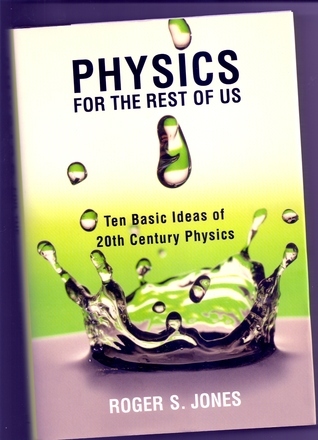What do you think?
Rate this book


There is practically no area of contemporary life that has not been transformed by the breathtaking insights and everyday applications of twentieth-century physics—from the technologies many of us take for granted to our deepest beliefs about the universe itself. Physics for the Rest of Us brings to life for the curious nonphysicist reader ten key ideas of modern physics and explores their far-reaching influence on our lives and thought.
Roger S. Jones explains major concepts—such as Einstein’s special and general theories of relativity, quantum theory, and the structure of the atomic nucleus—and traces the profound ways in which these ideas have affected our spiritual, psychological, ethical, and aesthetic worldviews. With lively intelligence, he also addresses such profound questions as: What light does science shed on the meaning of human existence? Are scientific theories independent of the men and women who conceive them? Are religion and science related or, ultimately, in conflict?
Physics for the Rest of Us turns a century of exciting scientific discoveries into an exciting voyage of human discovery and possibility.
Praise for Physics for the Rest of Us:
“Straightforward and highly engaging.” —The Book Report
From Physics for the Rest of Us:
“The theory of relativity has not only unlocked the secret of atomic energy but has also released us from the bonds of rigid space and absolute time. The study of the heavens has given us not only the space program but a new story of cosmic creationas well. And while quantum theory has endowed us with microchips and superconductivity, it has also saddled us with a strange and insubstantial view of the very stuff we are made of. The worldview we all share and take for granted today would have been inconceivable and incomprehensible to [Abraham] Lincoln or even to a nineteenth-century physicist.”—from the Introduction
318 pages, Hardcover
First published June 30, 2011